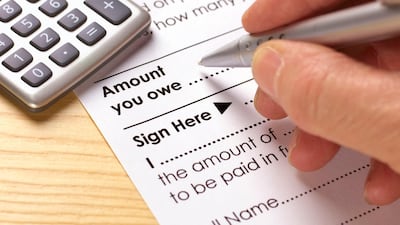Times are tough. Budgets are tight. Despite news of Covid-19 vaccines on the horizon, they aren’t available for everybody yet. Even when it rolls out, will your industry return to what it was before the Covid-19 pandemic? Will a properly globalised world with air travel and concerts come back? I hope so.
In the meantime though, many people are stretched to their financial breaking points. They are looking to not only support themselves, but also family members who may be facing unprecedented financial challenges. For some, that may lead to dangerous borrowing.
That leads to an important question. In what circumstances should you borrow money? When is it potentially ruinous and when is it viable?
In normal circumstances, a good rule of thumb is to borrow money to buy income-producing assets, especially if the interest rate is lower than your return. For example, if you can buy real estate with a 3 per cent interest rate and expect an 8 per cent return on your money, you’re making 5 per cent. That’s generally considered to be a good investment.
If you need to take out a loan for school, which will allow you to get a raise or a new job that pays more, thereby allowing you to pay off the loan in what you consider to be a reasonable time frame, that’s okay too.
Going into debt to buy things that don’t earn you money can ruin you financially. That includes cars, boats, clothes, bags, vacations, weddings, shoes and brunches. Those things won’t make you money. Instead, they will drain your bank account for years, with fees for maintenance, insurance and interest on the loan. If it’s a liability like this, pay for it with cash. This will save you a lot of headache.
This is especially true if you have to pay for liabilities with a credit card. Credit cards in the UAE charge very high interest rates of around 45 per cent. Those fees mount exponentially and digging out of that debt hole is nearly impossible.
Job losses caused by the Covid-19 pandemic make these principles even more critical to follow, but sometimes when your salary dries up, loans can prevent you from being homeless or starving and also help support family.
Loans can be useful to pay for education that allows you to move into a different field that is more resilient to adverse market conditions. If you have to take on debt for school, make sure it’s for something that will give you a steady paycheque afterwards.
Do your research well and try to find training that is free or certifications like Google recently started that is much cheaper than university fees. This could be the difference between taking on a mountain of debt and a more manageable pile of money, which you can tackle easily with a new career.
Whatever you do, don’t take personal loans at high rates, especially from sketchy private lenders who prey on those in need. The rates and fees may be hidden, and their ways of retrieving money can be dangerous.
As always, do whatever you can to downsize your expenses so that you need smaller loans to pay them. Fully understand any documents you sign. Do not take out loans for liabilities. The times might be tough, but try not to make them tougher –no matter how easy the solution seems to be.
Schoolteacher Zach Holz (@HappiestTeach) documents his journey towards financial independence on his personal finance blog The Happiest Teacher

